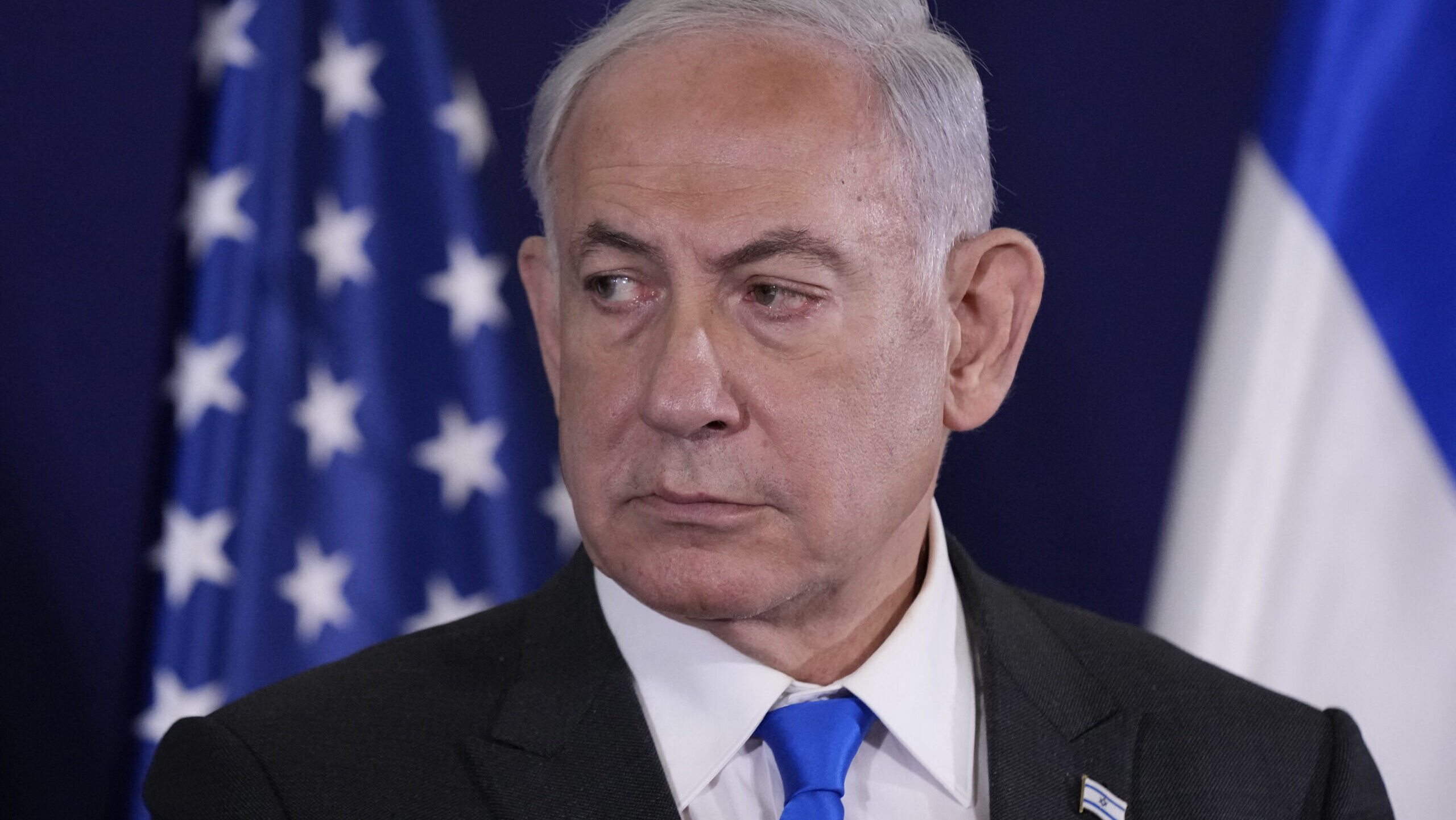Netanyahu Must Go, but He Won’t Go Quietly
As Israel’s war against Hamas intensifies, two things are becoming clear: Prime Minister Benjamin Netanyahu must go, and he won’t go quietly.
Israelis have slipped back into using two terms not heard since Egypt and Syria launched a surprise attack against Israel in October 1973, 50 years and one day before Hamas did the same: “fiasco” and “concept.”
“Fiasco” refers to the inconceivable negligence of leaving the Gaza-Israel border virtually unguarded. “Concept” describes the policy of shoveling millions of dollars to Hamas via Qatar on the assumption that the extremist, violent rulers of the Gaza Strip would behave themselves.
The similarities between 1973’s Yom Kippur War and the disaster of a month ago are clear: a failed defense line and faulty strategic assumptions.
After the Yom Kippur War, did then-Prime Minister Golda Meir resign immediately?
No. She actually won a postwar election, and she resigned only under mass public pressure led by demonstrations of reserve soldiers who had helped turn the disastrous beginning of the war into a military victory of sorts.
What can we expect from Netanyahu, then?
It’s crucial to emphasize that Netanyahu is not responsible for the massacres, rapes, beheadings, burnings, and abductions of Oct. 7. Hamas is to blame. Israel’s role is limited to its failure to stop the bloodthirsty terrorists from carrying out the rampage.
Netanyahu has been Israel’s prime minister for most of the past 15 years. He made the key decisions that led to the fiasco. He promoted the policy of buying off Hamas in exchange for (false) assurances that Hamas would stay relatively quiet, except for a few rocket salvos here and there.
All of this happened on Netanyahu’s watch. So, whether he admits it or not, he is ultimately responsible.
He oversaw the building of a high-tech border barrier (which turned out to be easily defeated by Hamas invaders) and the subsequent transfer of most troops on the Gaza front to the West Bank. There, the soldiers protect settlers and their dozens of unauthorized outposts and battle Palestinian terrorists.
Give the gift of hope
We practice what we preach:
accurate, fearless journalism. But we can't do it alone.
- On the ground in Gaza, Syria, Israel, Egypt, Pakistan, and more
- Our program trained more than 100 journalists
- Calling out fake news and reporting real facts
- On the ground in Gaza, Syria, Israel, Egypt, Pakistan, and more
- Our program trained more than 100 journalists
- Calling out fake news and reporting real facts
Join us.
Support The Media Line. Save democracy.


All of this happened on Netanyahu’s watch. So, whether he admits it or not, he is ultimately responsible.
But he doesn’t accept that.
Netanyahu has been Israel’s most divisive leader. Over the past year, he and his extremist government have widened the social chasms and inflamed the public arena to an unprecedented extent.
Netanyahu’s government, with its three dozen ministers, has been tragically ineffective in this time of emergency. Volunteer organizations have sprung up to fill the gap of government incompetence by helping the survivors of the massacre, supporting the families of the hostages held by Hamas, and even feeding the soldiers.
Government ministers who try to visit those affected by the tragedy are booed and expelled.
There’s an easy explanation for the incompetence. The ministers were chosen solely for their political affiliation, not for their skill or knowledge in handling the affairs of their ministries. Quite the opposite. Some fired the experienced civil servants in their ministries and replaced them with political hacks. No wonder they can’t do anything.
But to be fair, they are doing some things. Hardline ministers are supporting violent elements among Israeli settlers in the West Bank who attack Palestinians under cover of the Gaza war, almost as if they want to ignite another front. Others are looking for ways to funnel millions to the ultra-Orthodox Jewish sector, although every shekel is needed for the war effort.
Meanwhile, one of the more obscure ministers even nodded in the direction of dropping an atomic bomb on Gaza. This is wrong for so many reasons, including that Israel has never publicly admitted to having nuclear weapons. And that’s only for starters.
So is Netanyahu, who heads up this group travesty, packing his bags? Not at all.
To the contrary, he’s doubling down, adopting the time-honored tactics of making hints and then denying he said anything specific, calling reporters who quote him liars, and releasing statements only to later retract them.
His first target was his own military. He charged, not without justification, that Israel’s vaunted military intelligence dropped the ball when it failed to pick up on the signs that Hamas was planning a large-scale cross-border attack. He claimed he knew nothing about it in advance.
That last claim may or may not have been true, but his attempt to deflect his own blame onto the military backfired so quickly and broadly that he retracted his statement and apologized.
Then he told reporters in a briefing that research must be done regarding a possible connection between the Hamas massacre and the six months of mass protests against his government’s radical plans to gut the judiciary. He singled out air force pilots who had threatened to stop volunteering for training if his extreme measures were not halted.
The message to Netanyahu’s base is clear. … He’s signaling to them that it’s not his fault.
That was a step too far for many Israelis. It was noted that as he defamed them, those very pilots were flying missions in enemy territory. So he “clarified” that statement, too.
But the message to Netanyahu’s base is clear. That base is made up of fanatical supporters who believe the prime minister to be a supernatural savior figure who can do no wrong. He’s signaling to them that it’s not his fault. It’s the fault of the “leftists,” a general term for anyone who opposes him, and the military. He’s not going anywhere.
There’s a debate about whether Netanyahu should be replaced in the middle of a war. Critics warn that this would broadcast weakness to Israel’s enemies. Those in favor say his divisiveness, ineffectiveness, and strategic errors are reason enough to replace him now.
Ultimately, the question of timing isn’t relevant. The only question that matters is whether, after this colossal failure, the leader known until now as “Mr. Security” will find a way to stay in office by maintaining and deepening the divisions that have kept him there so long.
As a reporter who has been covering Netanyahu for more than three decades, I can say that no one has ever made a living by underestimating his political skills or ruthlessness in achieving his goals.


